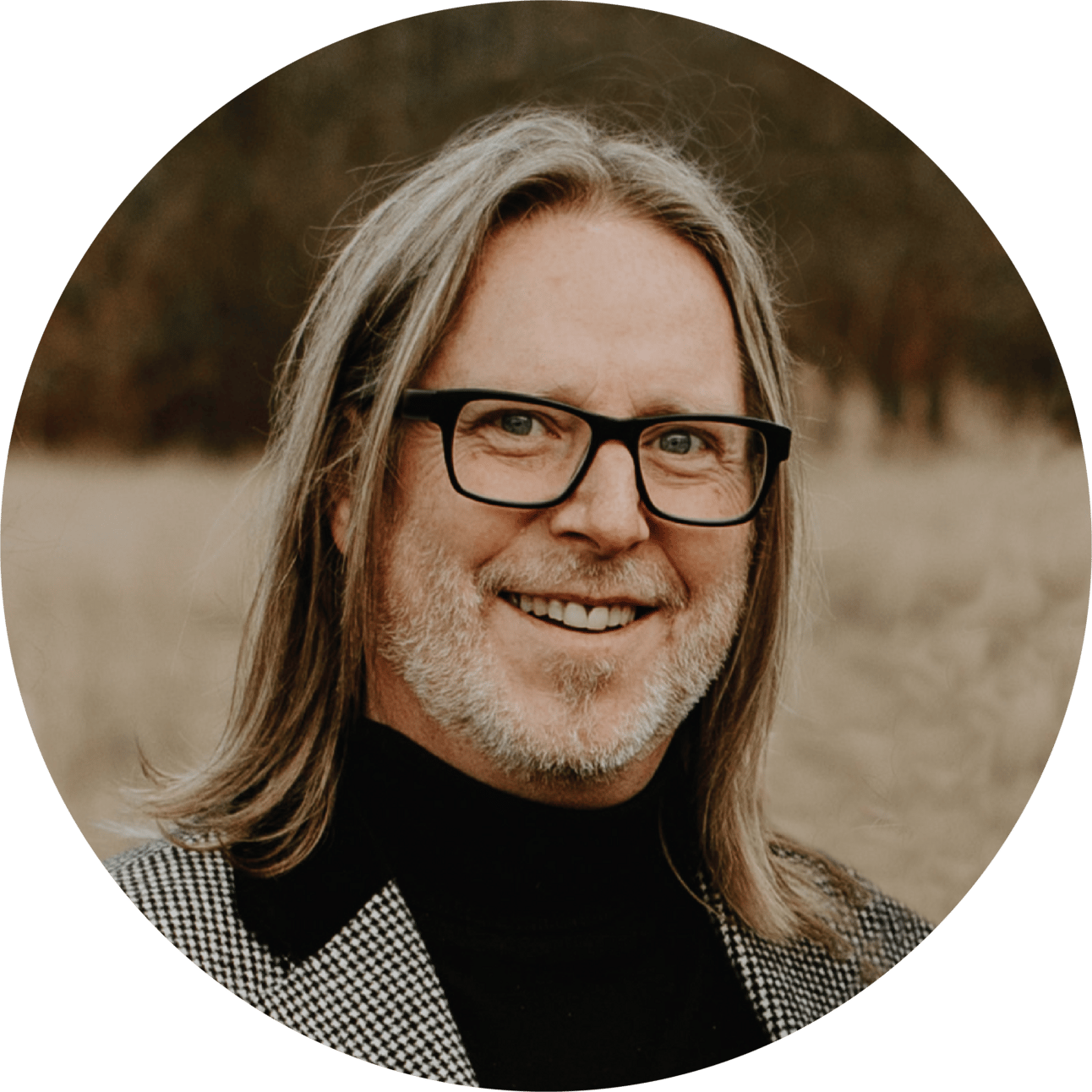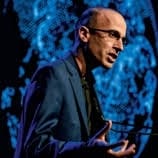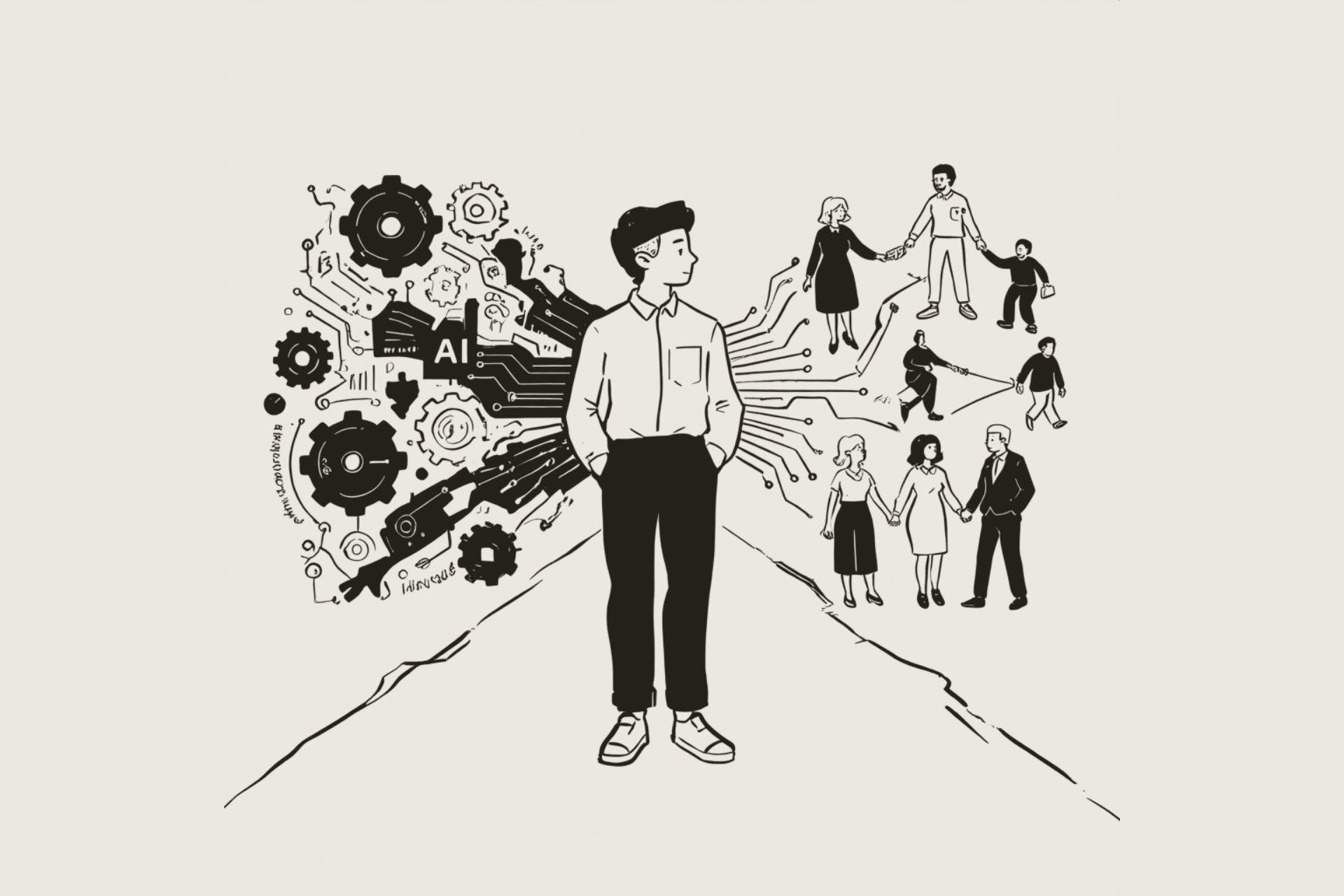Why Love—Not AI—Will Decide Our Future
It was late, and I should have been asleep. Teresa mumbled a reminder not to stay on my phone too long. “Just a couple of minutes,” I promised.
Thirty-five minutes later, I was still scrolling—picking at headlines and half-baked opinions like cold leftovers from the fridge, hoping one might finally satisfy. But they never did. Each swipe promised nourishment, yet left me mentally bloated, emotionally restless, and somehow less human.
This story isn’t just about me. It’s about us. We live in an age where stimulation masquerades as sustenance, where the stream never stops. And as artificial intelligence continues to evolve, that stream isn’t slowing—it’s swelling. AI won’t just add to the noise; it will multiply it, accelerate it, and feed it back to us in ways we can barely imagine.
But I want to be clear: this isn’t a conversation about fearing AI as some looming monster. It’s a conversation about us—about how we use the tools we’ve built and about the kind of intelligence we choose to bring to them.
The Amplifier of All Things
Technology has always been an amplifier. Fire warmed homes—or burned them down. The printing press spread truth—or propaganda. Nuclear power lit cities—or flattened them.
AI is no different. It won’t choose for us. It will simply magnify what’s already in us—our wisdom or our folly, our generosity or our greed, our selfishness or our love.
The Real Question: What Will Drive AI?
And that’s the heart of the matter. If AI is an amplifier, then the real question isn’t what it can do, but how we will use it. Unlike us, machines don’t pause. They don’t reflect, sleep, or stop to ask what matters. Left unchecked, AI could push us to live as machines do—always on, always reacting, never resting.
But humans are not machines. Our core intelligence isn’t speed or scale. It isn’t data-crunching or pattern recognition. Our core intelligence is love—the one capacity that has always set us apart. Not knowledge, not logic, not even creativity, but the ability to care for the well-being and security of others as much as we care for our own.
This is humanity’s first and deepest intelligence—the self-correcting force that nourishes instead of depletes, that keeps families whole, communities safe, and societies from devouring themselves.
Without love, intelligence turns into manipulation.
Without love, freedom slips into exploitation.
Without love, progress collapses under its own weight.
With love, even flawed systems can begin to heal.
With love, broken communities can move toward wholeness.
With love, the future remains open and expansive.
The Crossroads We Face
This is where we stand today:
AI could help solve hunger—or accelerate exploitation.
It could advance climate solutions—or drive political manipulation.
It could expand human dignity—or shrink it.
The difference won’t be the code. It will be the character—and the core intelligence—of those who write it. And the only intelligence strong enough to guide humanity toward a better future is love.
Three Practices for Living Love Well in an AI Age
Choose Quality Over Quantity.
AI will flood us with information, but wisdom comes from discernment. Practice your core intelligence by curating what you consume and giving yourself time to reflect before reacting.See the Human First.
Behind every comment, post, or dataset is a person. Our core intelligence—love—reminds us to rehumanize our interactions, resisting the machine-like tendency to reduce others to data points.Let Love Be the Motive.
Before making a decision—big or small—pause and ask: Am I being driven by fear, greed, or selfishness, or by love? Core intelligence shows up not in what we know, but in why we act.
Love: The Critical Success Factor
As we move forward in a world where AI could help solve global hunger or climate change—or just as easily drive mass manipulation, political chaos, and economic exploitation—we must remember this:
AI itself is not the opportunity or the threat. We are. Humanity will not flourish because we outsmarted machines, but because we brought our core intelligence to bear—love. The capacity to care for the well-being and security of others as much as we care for our own is the only force strong enough to determine our future.
Until next week,
Jonathan Penner | Co-Founder & Executive Director of LifeApp


Resources To Take This Conversation Deeper

Book
Life 3.0: Being Human in the Age of Artificial Intelligence
MIT physicist Max Tegmark maps out the possible futures of AI—from utopias where technology amplifies human potential, to dystopias where it erodes freedom and meaning. His vision is rigorous, sobering, and imaginative. But what the book makes clear—without ever naming it outright—is that intelligence alone is not enough. The future will not be decided by code or algorithms, but by the values we bring to them. If power is oriented by fear, greed, or control, the systems we create will reflect that. If guided by love—defined as caring for the well-being of others as much as our own—then AI can become a tool for human flourishing. Tegmark gives us the scaffolding; love must supply the compass.
-Max Tegmark

Video
AI and the Future of Humanity
Yuval Noah Harari makes a startling observation: the real danger of AI isn’t robots—it’s language. Words are the operating system of human culture, shaping trust, politics, and even our sense of reality. Now imagine machines that can manipulate language better than we can. That’s the power Harari warns about: fast, unpredictable, and deeply destabilizing. But here’s what’s missing in his warning, and in much of the global conversation: what will guide us as we wield such tools? Intelligence alone won’t be enough. If we don’t anchor AI in love and integrity, the very systems designed to serve us could quietly unravel the fabric of what makes us human.
-Yuval Noah Harari (41:21)

Music
Native Tongue
“Native Tongue” by Switchfoot is a rallying cry to remember love as the first language of humanity. Before we learned to fight and divide, we knew how to sing in harmony, and the song urges us to reclaim that voice. If AI represents an artificial or alien intelligence—precise but heartless—love is our native intelligence, the one language no machine can ever truly speak.
-Switchfoot (4:38)
Learn More About
This was life changing. I freely feel me again. I am now a better mom and better friend because of it.

